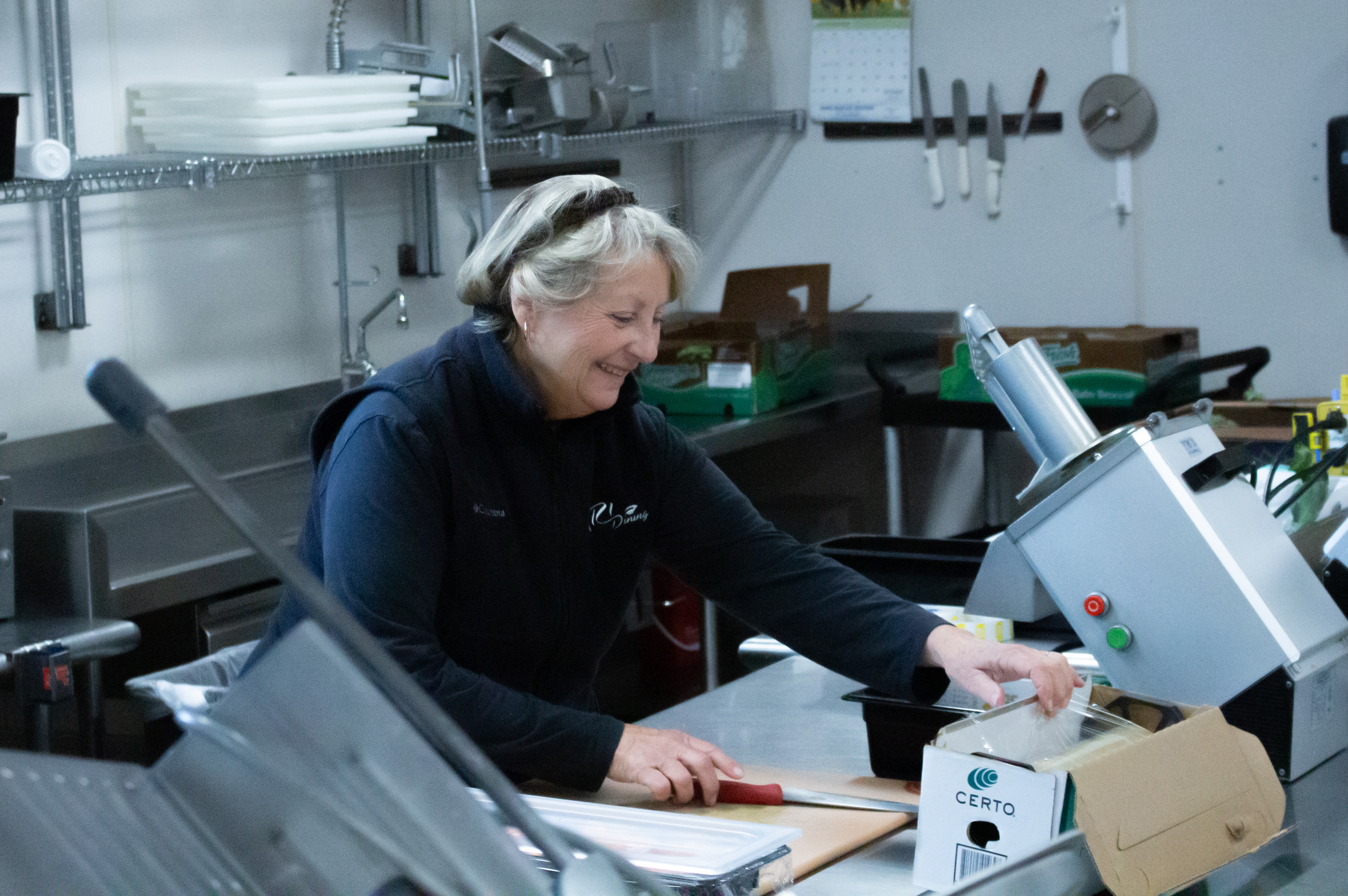Employees in
Two Mainfare employees describe what their days are like
For students that live on campus, the dining halls are a constant hub of student activity: studying, spending time with friends and eating daily meals.
What students don’t often consider, however, are the people who are cooking the meals, serving them and maintaining the food that’s set out. These staff members are essential for the dining hall to operate, and making sure everything runs smoothly.
Carol Eldridge and Carla Hull are two dining services staff members at Mainfare. As employees of Mainfare, Eldridge and Hull both work four, 10-hour days each week. The shifts vary, but the majority of the staff often works from 10:30 a.m. until 9 p.m.
Eldridge and Hull can be found at Hope Commons taking care of various tasks, such as maintaining the salad bar, serving at the homestyle section, making sandwiches at the deli and swiping students in, amongst other things. They pick something different each day through the bidding system.
According to Eldridge, when they come in each morning for work, each employee bids on what task they want to be in charge of for their entire shift. The bidding system is based upon seniority, allowing those who have been there the longest pick what they would prefer to do first.
Both Eldridge and Hull agree that it gets boring to do the same thing everyday, so they often try to pick a different station every time they work.
One of the largest challenges for many Mainfare employees is the lack of work during the summer. Most are academic workers that are employed just for the school year.
“Sometimes you have to find another job,” Hull said. “And you have to plan for the summer well. But the work during the academic year makes up for it. But it’s a good place to work, and we have a job, that’s important.”
Eldridge has been working at URI for 11 years and still enjoys her work, citing her coworkers and the students as the highlight.
“Because we get along so well, for the most part, it makes it go by fast,” Eldridge said. “The kids make it go by even faster. The only sad thing is you get used to waiting on them for four years and then they say ‘I’m a senior.’”
One of the dining hall worker’s main responsibilities is dealing with allergies. Students with allergies often need specific accommodations. According to Hull and Eldgridge, they often develop close relationships with these students because they spend so much time making sure that their needs are satisfied.
“As long as the kids are honest, that’s important,” Eldridge said. “Someone earlier said they had a shellfish allergy but were afraid to say it because they know we have to go through this, this, and this, but it’s not a big deal. He kept saying he was sorry, but it’s not a big deal. I would rather you be safe than something happen. It’s the little things that you do.”
Eldridge and Hull also spend a lot of time with student athletes, specifically men’s football and soccer. According to Eldridge, the teams often come in to say goodbye before they leave for long away games, and the dining staff keeps up with how they play.
“I have a bad habit, I’m a hugger,” Eldridge said. “It’s fun. When you work 10 hours, it’s a long day, but when [students] come in, they smile, they talk to you, and they get excited, it’s worth it.”

